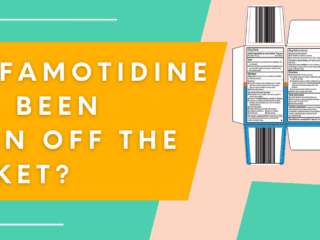Generic Name: Hydrochlorothiazide
Brands: Apo-Hydro, Aquazide, BPZide, Dichlotride, Esidrex, Hydrochlorot, Hydrodiuril, HydroSaluric, Hypothiazid, Microzide, Oretic
Class: Diuretics, specifically thiazides
Availability: Prescription only
Molecular Formula: C7H8ClN3O4S2
Substance UNII: 0J48LPH2TH
What is Hydrochlorothiazide?
Hydrochlorothiazide is a diuretic, commonly known as a “water pill.” It is available under the following trade names:
- Apo-Hydro
- Aquazide
- BPZide
- Dichlotride
- Esidrex
- Hydrochlorot
- Hydrodiuril
- HydroSaluric
- Hypothiazid
- Microzide
- Oretic
What is Hydrochlorothiazide Used For?
Medical providers prescribe hydrochlorothiazide to treat high blood pressure, also known as hypertension. Hydrochlorothiazide also treats edema, a condition in which bodily tissues retain excess water.
How Does Hydrochlorothiazide Work?
In order to understand how this medication works, it pays to know a little bit about the conditions it treats first.
Blood presses against the inside of blood vessels as it flows through arteries and veins. Blood pressure is a measurement of this pressure; high blood pressure means blood is exerting too much pressure against the inside walls of veins and arteries. Decreasing the volume of fluid in arteries and veins reduces this pressure.
Edema, also known as “retaining water,” happens when tissues hold too much fluid. It occurs when tiny blood vessels leak fluid, which then accumulates in the tissue surrounding the blood vessels.
Hydrochlorothiazide works to reduce blood pressure and fluid buildup by increasing the formation of urine. In other words, this drug makes a person urinate more often, which is why many people refer to it as a “water pill.” Hydrochlorothiazide does so by helping the kidneys release more sodium, or salt, into the urine. Sodium takes with it water from the bloodstream, so it decreases the amount of fluid flowing through the blood vessels.
How Long Does it Take for Hydrochlorothiazide to Work?
It takes about 2 hours after an oral (by mouth) dose to work. The effects reach their peak about 4 hours after taking an oral dose, and the effects last for about 6 to 12 hours.
Do Not Use Hydrochlorothiazide If:
There are several situations where this medication may not be the right choice for you. According to the FDA, the following should not use hydrochlorothiazide:
- People with hypersensitivity to hydrochlorothiazide.
- Patients with allergies to sulfa drugs.
- Those with anuria, a condition in which the kidneys cannot filter waste from the blood to produce urine.
- Patients with kidney disease, as this drug may prevent the kidneys from getting rid of nitrogen waste.
- Those who have liver disease, glaucoma, asthma or allergies, gout, or diabetes.
Please note that this list may not be complete, and there may be other situations where use of this drug is not advisable.
Disclaimer: this article does not constitute or replace medical advice. If you have an emergency or a serious medical question, please contact a medical professional or call 911 immediately. To see our full medical disclaimer, visit our Terms of Use page.








